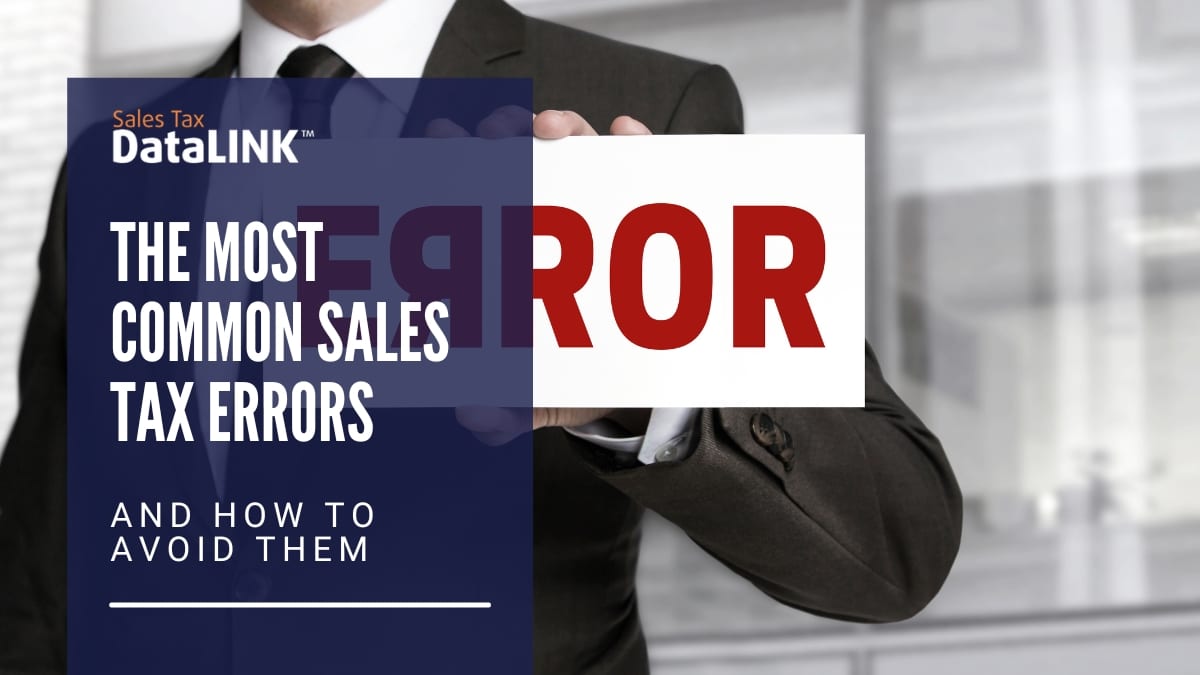To err is human, and that fact is never so apparent as when dealing with taxes. Recently, several states have publicized the most common sales tax errors experienced by their residents in an effort to help business owners comply with complicated sales tax laws.
Each state has its own rules, but generally, jail time is reserved for those who willfully and knowingly report incorrect sales tax. However, it can be difficult for an auditor to distinguish an innocent accident from intentionally dishonest bookkeeping. So, it is best to catch the errors you can before an audit and document all your business in an easy-to-follow and organized manner so as to not incriminate yourself.
Common Sales Tax Errors
South Dakota, Colorado, and Connecticut are among the first states to begin sharing sales tax error information. If this trend continues, we will have a broader understanding of where business owners are most likely to misunderstand their sales tax liability or the law in general. However, as it stands these mistakes should be taken as guidelines for what to double-check before filing your sales tax return.
- Under-Reporting Sales Tax Because Of Poor Record Keeping: Manually determining jurisdiction rates, tracking rules, and managing boundary changes can result in sales tax errors. Technology can be a great help in this respect. Using reliable sales tax software to manage rate changes in real time can greatly reduce rate errors and lower your audit risk.
- Incorrect Returns Filing: Return filing is one of the many hurdles of sales tax compliance. Many jurisdictions penalize for late filing incorrect forms or missed extension deadlines. To combat this stay organized, know your filing information, and know your filing dates.
- Failing to Register In The Correct Jurisdictions: Businesses are sometimes surprised by the fact that they must register in the states where they do business. What they don’t realize is that not registering is a huge red flag to auditors that may indicate fraudulent bookkeeping. Not only that, but failure to register can make a material difference for the business as well. For example, in Ohio registered companies are only required to provide four years of documented transactions; for the unregistered, auditors need to see seven years of transaction records.
- Incorrectly Remitting Use Tax On Inventory Taken For Business Or Personal Use: Consumer use tax rules differ between states, and apply between businesses as well as consumers and sellers. In states that don’t collect sales tax on out-of-state sales, the retailer purchasing goods from a wholesaler would be required to pay consumer use tax. South Dakota reports that use tax errors is the most common reason for audits.
- Not Having Valid Exemption Certificates On File: Without valid certificates, a company is open to audits based on assumptions. In other words, auditors take a sample, find one error, and assume that a similar error occurs across all certificates. The resulting fines, penalties, and fees increase exponentially from there. In Connecticut, for example, companies owing back taxes without a plan to repay led to 34 arrests in 2012.
In the long run, it is better to self-audit and find errors before you file and risk receiving penalties from the state. During free evaluations of customers’ sales tax systems, we found that about 90% of them discovered errors that they didn’t think were there. As sales tax software improves, it becomes easier for them to find those errors making your sales tax responsibilities less of a burden.




